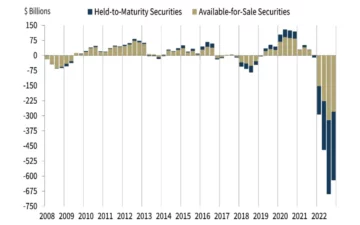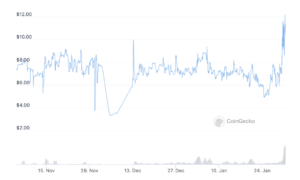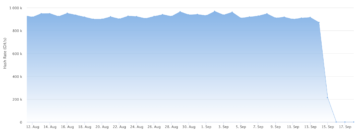Bitcoin has risen above $35,000 today, gaining 2% largely due to crypto specific factors like the adjustment of difficulty, but a European Central Bank (ECB) special meeting this week might be playing a part.
The Governing Council will gather in Frankfurt for a dinner this Tuesday that could extend to Thursday to conclude a strategic review that has been running since early 2020 on inflation, employment, climate change and fiscal policy.
The biggest focus and disagreement appears to be on inflation with member Isabel Schnabel arguing ECB should target an average rate of 2%, stating:
“Years of repeated overprediction of the future path of inflation require that higher inflation prospects need to visibly migrate into the baseline scenario, and be reflected in actual underlying inflation dynamics.
Such patience may lead to inflation outcomes being moderately above our aim for a temporary period of time. This will be a necessary and proportionate requirement to set the conditions to escape low inflation.”
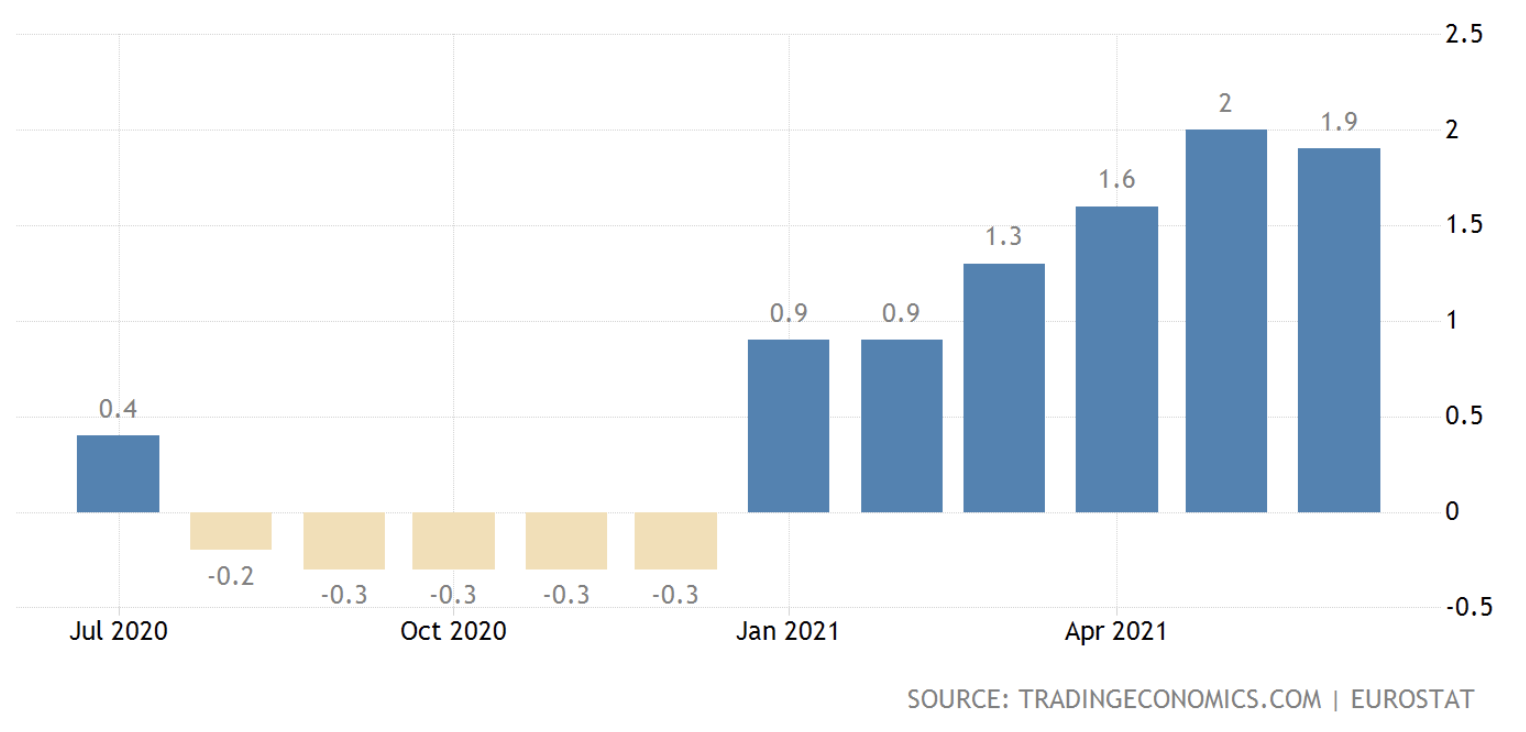
This approach follows that of the Federal Reserve Banks which has temporarily targeted an inflation rate above 2% with the aim of shaking off persistent low inflation.
“Rising long-term inflation expectations suggest that the exit from the pandemic provides, for the first time in many years, some ground for cautious optimism,” Schnabel said, adding:
“The euro area economy may eventually escape the low growth, low inflation environment that has dominated the macroeconomic landscape for most of the past decade.”
Germany’s head of the central bank, however, Jens Weidmann, argued ECB should systematically target 2% with any overshoot taken as seriously as undershoots. He said:
“Holding still when the inflation rate exceeds target level in the medium term could be misunderstood as an attempt by monetary policy to put the sustainability of public finances above the goal of price stability. This could make it even more difficult to anchor inflation expectations.”
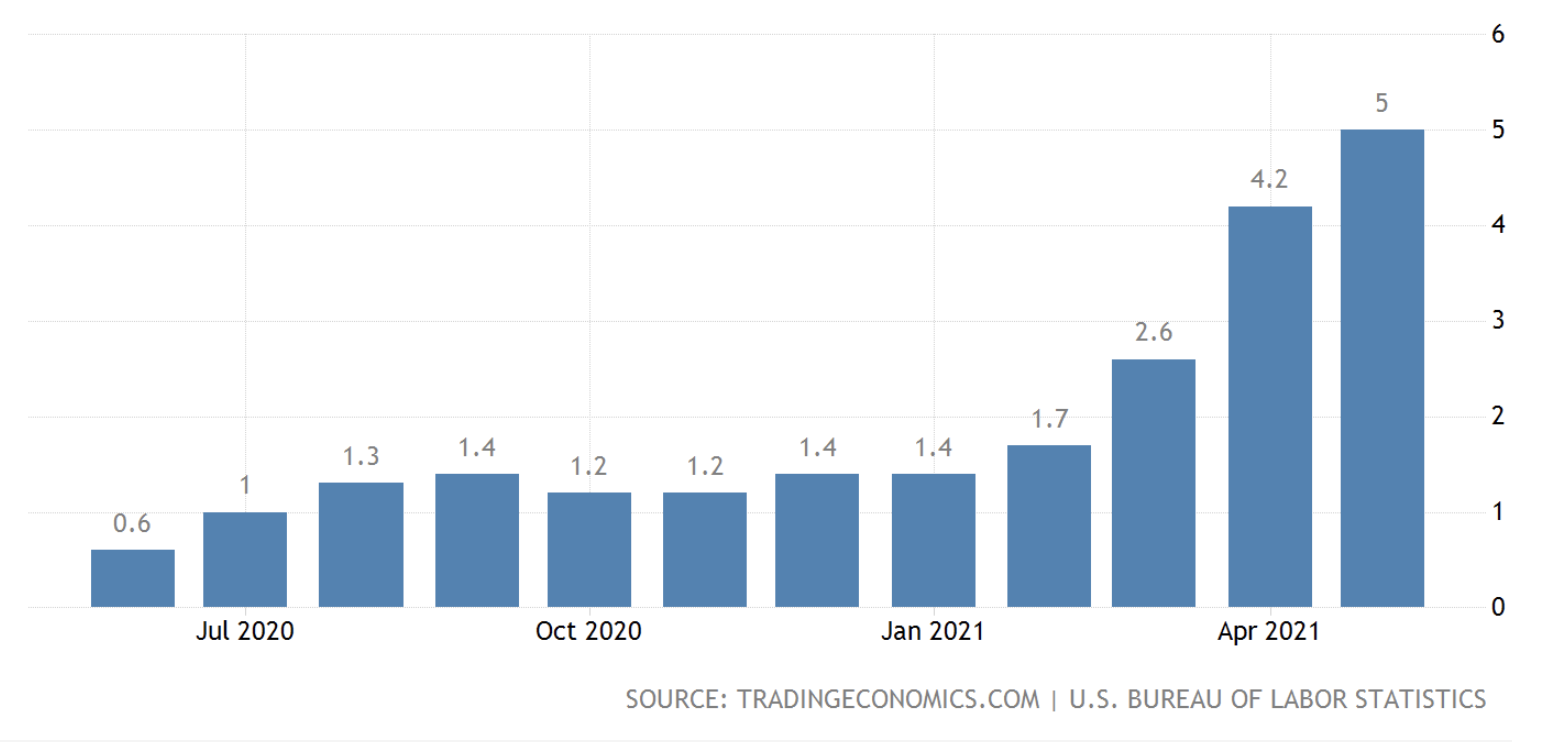
Germany’s experience of hyperinflation precisely a century ago naturally makes them extra cautious, but both America and Europe find themselves in an unconventional monetary environment that rose due to the collapse of American banks a decade and a half ago, leading to a collapse in bank lending and thus a slowdown in the velocity of money.
The Congressional Budget Office said on Saturday the cost of bailing out the banks ended up being just $30 billion for the United States despite close to a trillion being advanced.
Places like London however were hit harder due to banking making a large part of their economy, with the then government instituting a decade of austerity under the claim they had no money.
The market led attack on euro countries then left places like Italy in a perilous state, amplified by a dysfunctional government and a politically apathetic populace in part due to the then prime minister controlling the broadcast media.
This led to effectively a euro wide austerity and monetary contraction, which caused a decade of stagnation, and now with the 2020 depression, a smaller economy than in 2010.
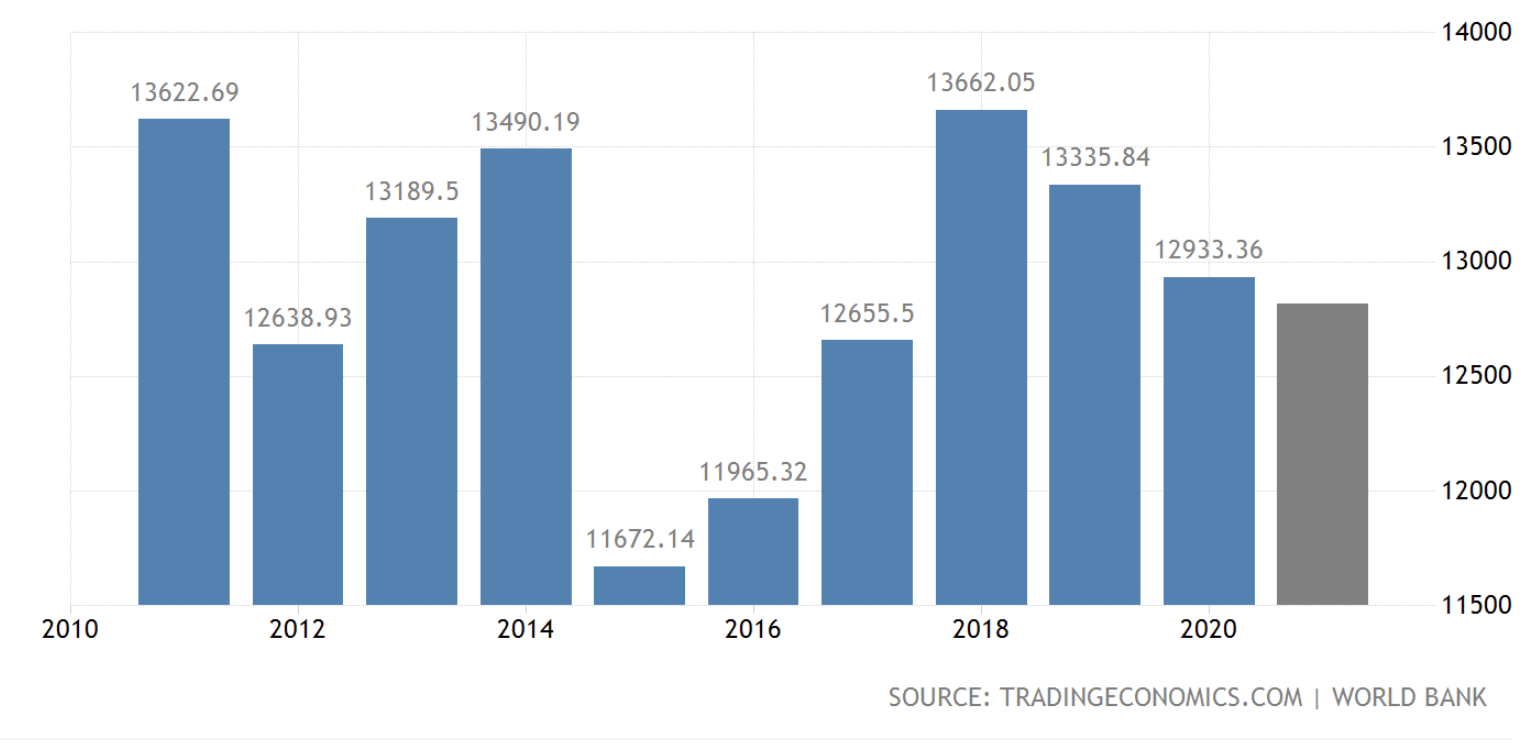
America took a different approach due to a Democrat taking charge with Obama pumping stimulus on the economy, something continued by Trump tax giveaways.
Thus while Europe once was on par with USA and even slightly overtook it, America took off and is now a far bigger economy than in 2010:
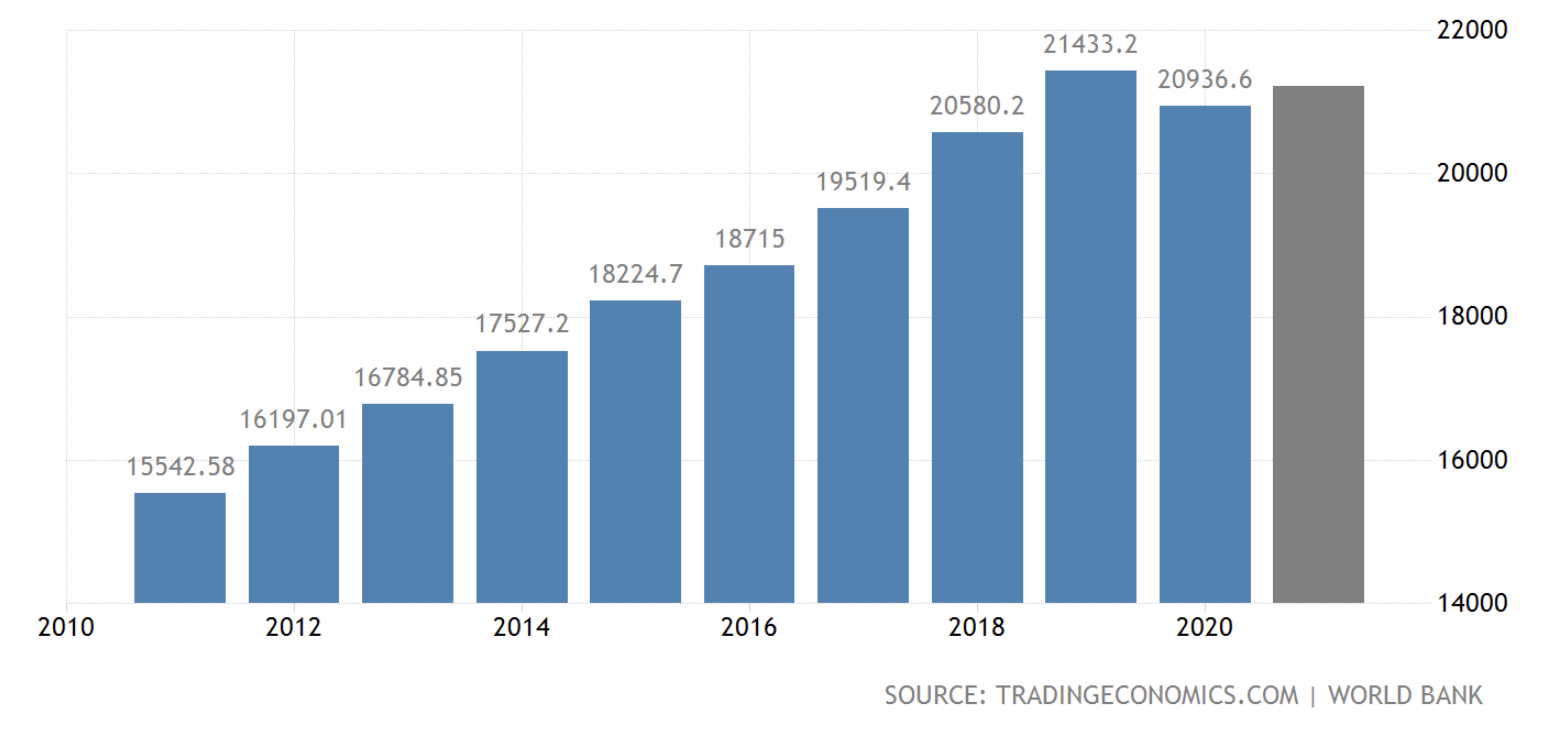
This monetary machination is now again on the table and again we have the same arguments, though this time the ‘market’ is keeping silent.
That means Europe in effect currently has a blank cheque from the market, and if Germany backs any European endeavor, then the market is effectively checkmate.
Nationalism here however is a factor that America does not have in this flavor, and therefore we have disagreement even while european inflation is 3% lower than in the United States.
Something that might not make a difference for German Mercedes or even French sparkling wine, but it could potentially make a difference for Italian fashionable clothes.
In addition after a depression one has to consider just how big is the hole one has to fill, and how much time the stimulus needs to actually get to the voters who of course are ultimately in charge.
Because as it stands for the first quarter Europe was still contracting by 1.3%, while America saw growth of 0.4%.
Something that may risk another divergence with european leaders having to explain why America grew significantly during the past decade while europe stagnated, and more importantly how exactly will europe grow to a far bigger economy in a decade hence if collectively we are not making big investments in continental infrastructure to both upgrade for this century and kickstart a competitive economic cycle that does not leave europe behind once more.
In addition as money issuance is collective, decisions must be made with a continental view that looks forward to the entire decade and what one should expect from the decisions of the present considering the movements of other actors too.
Source: https://www.trustnodes.com/2021/07/04/bitcoin-rises-ahead-of-ecb-special-meeting
- 000
- 2020
- 2021
- AI
- america
- American
- AREA
- arguments
- Bank
- Banking
- Banks
- Baseline
- Biggest
- Billion
- Bitcoin
- caused
- Central Bank
- change
- charge
- Climate change
- content
- continental
- Council
- countries
- crypto
- depression
- Early
- ECB
- Economic
- economy
- employment
- Environment
- Euro
- Europe
- European
- European Central Bank
- Exit
- Federal
- federal reserve
- Finances
- First
- first time
- Focus
- Forward
- future
- GDP
- Germany
- Government
- Grow
- Growth
- head
- here
- How
- HTTPS
- hyperinflation
- inflation
- Infrastructure
- Investments
- issuance
- IT
- Italy
- July
- keeping
- large
- lead
- leading
- Led
- lending
- Level
- London
- Making
- Market
- Media
- medium
- money
- Obama
- Optimism
- Other
- pandemic
- policy
- present
- price
- public
- review
- Risk
- running
- set
- Stability
- State
- States
- stimulus
- Strategic
- Sustainability
- Target
- tax
- temporary
- The Future
- time
- trump
- Trustnodes
- United
- United States
- USA
- USD
- VeloCity
- View
- week
- WHO
- years






